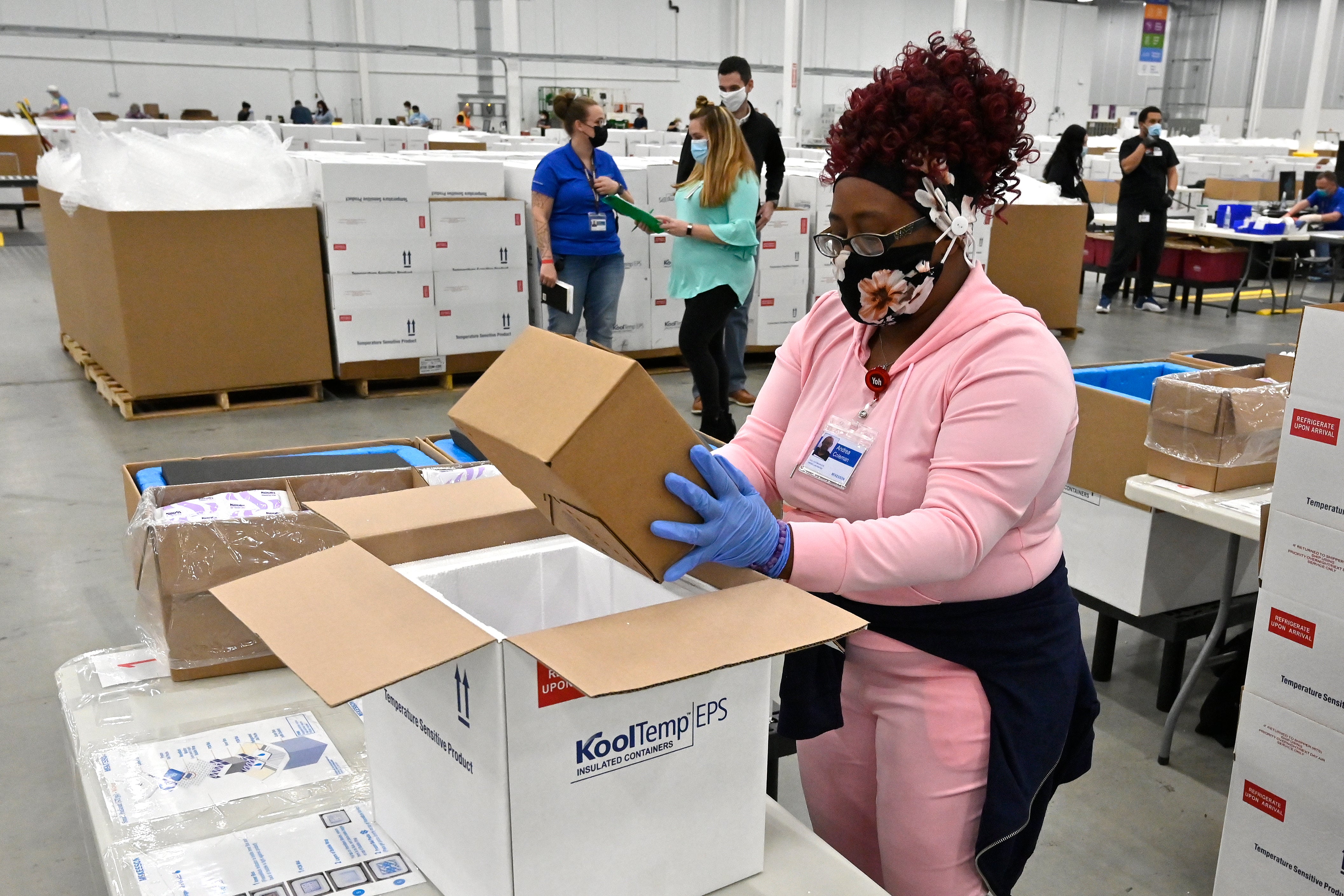Things to Know: States ease restrictions despite warnings
States eager to reopen for business are easing coronavirus restrictions despite warnings from health experts that the outbreak is far from over and that moving too quickly could prolong the misery

Here's what's happening Monday with the coronavirus pandemic in the U.S.:
THREE THINGS TO KNOW TODAY:
— With the U.S. vaccination drive picking up speed and a third vaccine on the way, states eager to reopen for business are easing coronavirus restrictions despite warnings from health experts that the outbreak is far from over and that moving too quickly could prolong the misery.
— Senate Democrats are considering reshaping parts of the $1.9 trillion COVID-19 relief bill passed by the House. As they do so, party leaders who are hoping to salvage a minimum wage increase have abandoned one proposal aimed at pressuring big companies to boost workers’ pay.
— California Gov. Gavin Newsom and state legislative leaders have reached an agreement aimed at getting most public school children back in classrooms by the end of March. Under the deal announced Monday, school districts could receive up to $6.6 billion if they reopen classrooms by March 31.
THE NUMBERS: According to data from Johns Hopkins University, the seven-day rolling average for daily new cases in the U.S. did not increase over the past two weeks, going from 90,946.7 on Feb. 14 to 67,364.9 on Sunday. In the U.S., 15.3% of the population had received at least one dose of a coronavirus vaccine, while 7.7% have completed their vaccination.
QUOTABLE: “This is exactly what we fought for. This is the moment that we knew would be possible and important in the lives of our young people. ... That’s why this giving parents an option to come back in-person for their students was so important.” - Chicago Mayor Lori Lightfoot, as thousands of Chicago Public Schools students returned to school Monday morning. It's the largest wave of students to go back to the classroom there after almost a year of remote learning.
ICYMI: Massive fraud in the nation’s unemployment system is raising alarms even as President Joe Biden and Congress prepare to pour hundreds of billions of dollars into expanded benefits. A government watchdog agency says that as of December, nearly two dozen states had not started using a key system to block fraud.
___
Find AP’s full coverage of the coronavirus pandemic at https://apnews.com/hub/coronavirus-pandemic
Bookmark popover
Removed from bookmarks